EXPULSION POLICIES, WITHDRAWAL POLICIES; THE PARADOX OF THE POLICIES OF DEATH THAT TARGET FORCED MIGRATION
The organizations and individuals that make up the Jesuit Migrant Network for Central and North America have gathered in Tijuana to analyze the context of forced migration in the region and renew our commitment to migrants, refugees, and host communities.
Our decision to hold our annual meeting in Tijuana is not a coincidence. Tijuana is a land of refuge — for generations, it was and still is a place of transit, but also a point of departure and a point of arrival. Tijuana is an emblematic border space that has grown as a city open to change thanks to the richness of the diverse people who have converged here over the years. However, today, Tijuana as a border is also the ultimate expression of the paradox of displaced people, of migrants and people in need of international protection, the paradox of forced migration in the Americas: while they are expelled due to our States’ policies, the policies in place in those same States prevent them from moving forward to lands of refuge and hope. Our way of relationships and society is traversed by policies of death.
EXPULSION POLICIES
It could be a young man from Honduras who knows that in his neighborhood he is more likely to be shot than to get a job. It could be a farming family from Guatemala that suffers threats for defending the river and opposing a mining company that pollutes it. It could be a student in Nicaragua who protests against the authoritarian regime and flees from political persecution. The fact that over 400,000 people in the Central American region flee their countries each year is the cruel reflection of the daily crises and the widespread violations of human rights that they suffer; it is a consequence of authoritarian public policies that impose development models which are responsible for exclusion and which cause inequalities and violence. It is a consequence of the environmental degradation of large extractive projects that affect the lives and decisions of communities in the lands that are being exploited.
There are 386,580 refugees and asylum seekers from the Northern Triangle, while the governments in those countries brag that they are safe and negotiate bilateral agreements that place many lives at risk. We hold that they are using migrants as currency in exchange for economic interests and the interests of the political and economic elite.
A bit over a year after the political crisis in Nicaragua, over 60,000 people have been forced to flee their country, most of them to Costa Rica. As a result of the policies of containment, detention, and expulsion implemented by governments in the region, over 200,000 children, young people, and adults have been forced to return to these contexts of death so far this year.
CONTAINMENT POLICIES
Border militarization. A quarter of a century ago, just miles from where we are gathered today, the US government began a new stage of border militarization through Operation Gatekeeper. Since then, death has become part of the border control strategy and over 8,000 people have died while attempting to cross Mexico’s northern border. Similar deterring and repressive policies have now spread across the region. We condemn border control policies based on death. The deployment of the National Guard and other controls in southern Mexico have exposed migrants to more dangerous routes and has led them to death, such as the 2 people from Cameroon who died off the coast of Chiapas on October 11 this year.
Detention is another policy of death. About 50,000 people are detained right now in the United States, and 21 people have died in CBP or ICE custody since January 2019. In Mexico, 144,591 people had been detained until August, 43% more than in the same period the previous year. Detention as a policy of death has also cost lives in the midst of the torture that these places of deprivation of freedom represent for migrants in Mexico. These lives represent people fleeing life-or-death situations in their countries and deported individuals only seeking to reunite with their family members in the US.
The collapse of international protection. As detention and control efforts intensify, the chances to apply for protection are being increasingly diminished by the countries in the region. US-Mexico collaboration to implement the program known as “Remain in Mexico” has already exposed over 50,000 people to precarious situations in border cities such as Tijuana, and some were even returned to the southern Mexican border through deception. So far, there are 340 documented cases of assault, kidnapping, and violence suffered by people returned under this program, and 25% of people returned to Tijuana report being victims of threats or violence.
In Panama is one of the most difficult steps of border flows, where Haitian and Cuban migrants, extracontinental groups, and other South American migration flows all cross the Darien, where their lives are utterly exposed. There are many testimonies of people who have died and disappeared.
POLICIES OF LIFE
It could be the case that this young man, this student, this family, could make different decisions about which way to take, travel across other paths and reach different destinations. It could be the case if States adopted policies of life.
Policies of life are those that fight against the inequality, poverty and structural violence generated by these escapes. They are those that propose social transformation, justice, inclusion. They are those that foster sustainability and respect towards our shared home and all forms of life, accept cultural diversity and encourage dialogue and learning with minorities.
Policies of life are those that address the obstacles along the way, that promote protection during the journey, that supply whatever is necessary, especially for those who are most vulnerable. Policies of life are those that assign a radical meaning to borders, as spaces for exchange, knowledge and recognition, diversity, for coming together, for enormous richness.
Policies of life are those that make arrivals easier and provide a space for recovery after exhaustion and translate into opportunities for integration and shelter, policies of life are hospitality. Policies of life are those that view human rights not as an ambition but a premise, whether our decision is to stay, leave or settle.
As individuals and organizations with the Jesuit Migrant Network, we believe that the right to migrate is a human right that should be guaranteed by States, upheld by international organizations and expressed by effective policies focused on the individuals. We also believe that the states must guarantee the appropriation conditions so that migration is a choice and not a flight.
We see ourselves in the vision statement proposed by the Church and the leadership of Pope Francis for the year of 2019 and as such we affirm, “It is not just about migrants, but all of humanity.”
Because in our network we stand with the individuals, those who fear for their lives, those who are prevented from living their lives in decent and fair conditions in their countries of origin, we walk alongside those who flee in their journey, and we embrace those in the destination who work for integration in spaces of coexistence and hospitality.
As such, as a Jesuit Migration Network:
We commit to strengthening our coordinated work of accompaniment, research and advocacy within ourselves and with other organizations and allied networks of the Church and of civil society, as that is the best way to walk with vulnerable, excluded, and exiled people in our region.
We demand that our states cease their expressions of hostility with which they receive migrants, the militarization of borders as an approach that run contrary to human rights and the cultivation of criminalization of migrants.
We demand that our states assure the protection of people, avoid re-victimizing and insure a good journey for those who are obligated to flee
We demand that our states contribute in establishing the truth about the phenomenon of forced migration, recognize the riches and contributions that migrants bring to communities of welcome and work towards hospitality, harmony and peace.
We demand that our states review their interests and their primary areas of complicity. That they work on national and regional plans of development based on loyal cooperation founded in justice, inclusion, and promotion of equity and care for our common home.
And as such we sign as those present in Tijuana, Baja California, Mexico on October 31, 2019.
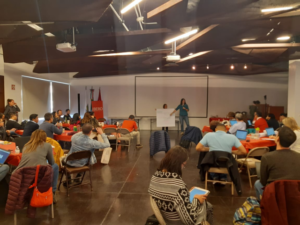

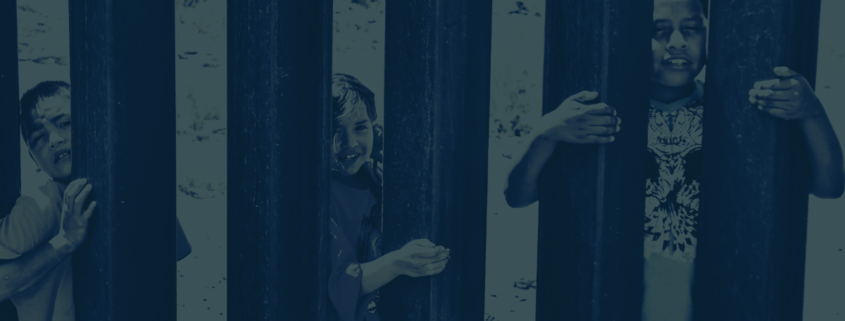

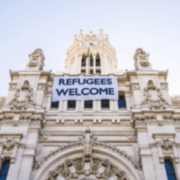
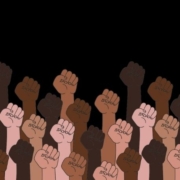
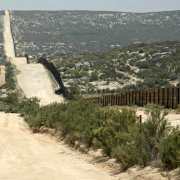
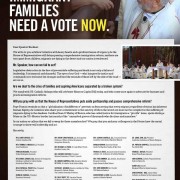
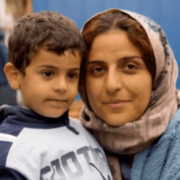


Bring them on. Policies of life – are life protecting, life sustaining, life promoting and life enhancing.